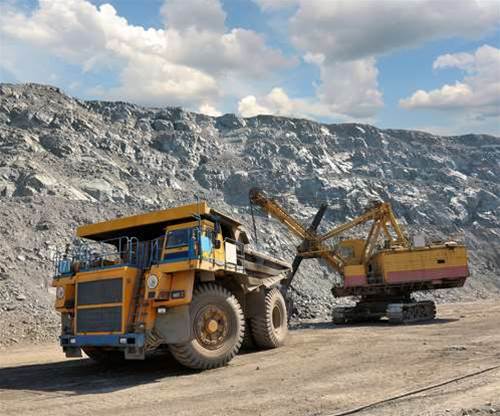The Gina Rinehart-backed Roy Hill mine has started scoping the design of an in-pit automation system as part of a broader plan to build an iron ore operation that is integrated from pit to port.

The company lodged a series of advertisements last week that showed the ramp-up of design work on the in-pit component of the automation project.
Roy Hill plans to deploy an integrated drill and blast system, autonomous trucks and trains and a remote operations centre to operate and manage the mine.
The company is preparing to pilot the systems, although a spokesman declined to comment on the pilot when approached by iTnews, saying it was "premature" to reveal more about the plan.
At a Chinese resources conference in 2009, Rinehart's company Hancock Prospecting raised automation and remote operations plans for Roy Hill as a way to keep the costs of the mine operation low.
Work on the design of the remote operations centre started in the middle of last year.
Roy Hill's job advertisements provide scant insight into the enterprise back-end that will support the automated plant.
However, they highlight plans to deploy an integrated fleet management system and integration points into "mine planning, condition monitoring and inventory management systems".
The $10 billion Roy Hill mine is predominately backed by Hancock Prospecting. Korean firm Posco also has a 15 percent stake, and reports last month indicated that more of the mine could be sold off.
The mine itself is located approximately 277 kilometres from Port Hedland in Western Australia's Pilbara region.
Construction started in the middle of last year. The first iron ore is to be shipped from 2014.
Roy Hill is not the first Hancock-owned mine to be automated. The company is designing similar systems to be deployed at its Alpha Coal project in Queensland.
The automation projects also place Hancock Prospecting in good stead with other mine giants that are also investing in automated systems.
Fellow iron ore miner Rio Tinto is the most public automation advocate through its long-running 'Mine of the Future' project. It recently announced a $442 million investment in driverless trains and is also investigating autonomous trucks.
BHP Billiton also recently bought train stock that includes "components that could enable autonomous use in the future", according to a report by the Sydney Morning Herald.


_(28).jpg&h=140&w=231&c=1&s=0)
_(23).jpg&h=140&w=231&c=1&s=0)







 iTnews Benchmark Awards 2026
iTnews Benchmark Awards 2026
 iTnews Executive Retreat - Security Leaders Edition
iTnews Executive Retreat - Security Leaders Edition
 iTnews Cloud Covered Breakfast Summit
iTnews Cloud Covered Breakfast Summit
 The 2026 iAwards
The 2026 iAwards












_(1).jpg&h=140&w=231&c=1&s=0)



